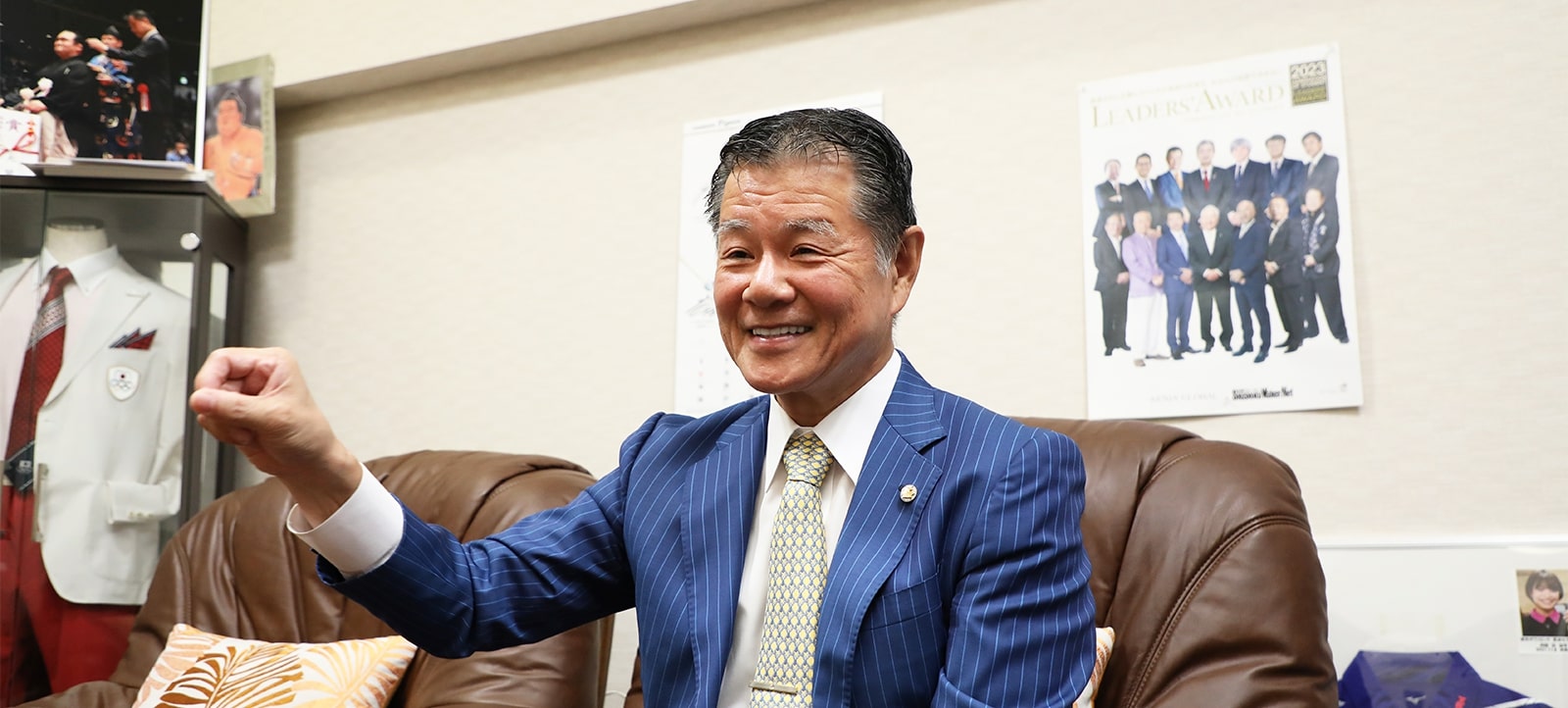My History
"If you want to lead a happy life, it's important to find something you love or are passionate about." This principle of happiness, taught during a psychology class in college, resonated with me deeply at a time when I was drifting through life without much purpose. Looking back, I feel that this lesson has shaped the work I do today.
When I was working at a bank, one of my clients, who ran an osteopathic clinic, once told me, "There’s no better job than one where you can help people and bring them joy." He seemed so genuinely fulfilled, and his words had a profound impact on me. Within a year, I decided to quit the bank, start working at an osteopathic clinic, and eventually earned my license as a judo therapist. For the past 40 years, I’ve been running my own clinic in Yao City, Osaka Prefecture, and every day I feel that this work is my true passion and purpose.
Over the years, many of my patients have not only dealt with physical pain but also struggled with lifestyle-related conditions like diabetes and hypertension. Despite being on medication for years, they often see little improvement, and many believe they’ll be on these drugs for life. As a judo therapist, lifestyle diseases were technically beyond my scope, and I felt I had no choice but to leave their care to internal medicine specialists. That changed when I attended a seminar on auricular acupuncture for weight loss. I learned that by stimulating specific points on the ear, it's possible to affect metabolism and hormone regulation. This opened my eyes to the possibility of helping these patients in a new way. I've since seen numerous patients who, after treatment, were able to control their cravings and improve their eating habits. Rather than just addressing the disease itself, this approach focuses on improving the body’s overall condition to achieve lasting health. Inspired by this method, I founded the Japan Association of Medical Body Contouring and have dedicated myself to promoting auricular acupuncture as a holistic treatment for weight loss.
The Present
Over a decade ago, I established Kinki Medical College to train judo therapists and acupuncturists. In Japan, the status of acupuncturists and doctors isn't on equal footing, unlike in countries such as the U.S., Europe, or China. Before the introduction of Western medicine in Japan, herbalists and acupuncturists served as internal medicine practitioners, and judo therapists—often referred to as "bone setters"—treated injuries like fractures. I often tell my students, "One day, if you work hard enough, you might be recognized as 'judo therapy doctors' or 'acupuncture doctors.' Let’s share the remarkable qualities of Japan’s traditional medical arts with the world."
The common thread that ties together my three main pursuits—my osteopathic clinic, the Japan Association of Medical Body Contouring, and Kinki Medical College—is a shared focus on promoting genuine health through Eastern medicine. This approach aims to improve the body’s overall condition rather than merely relying on medications or surgery to treat symptoms.
I have no desire to stand in opposition to conventional doctors. My own son is a doctor working in emergency medicine, and I know firsthand how tirelessly physicians dedicate themselves to saving lives, often at great personal cost. In fact, several doctors have come to my clinic, referred by my son, after developing neck and back issues from the demands of their work. One of them remarked, "In medical school, we mostly learned about surgeries and medications. I wasn’t taught how to treat patients using manual therapy. Could you teach me?" Even though we may use different methods, both doctors and acupuncturists share the same goal: to free patients from pain as quickly as possible.
For the Future
It’s not a question of whether Western or Eastern medicine is better or worse. I believe that an ideal healthcare system combines the strengths of both, working in harmony. I hope to see more medical professionals who can assess what is truly best for the patient, saying things like, "Acupuncture might heal this condition faster," or "This needs to be seen by a doctor." As long as we stay focused on the common goal of curing patients as quickly as possible, I believe we can achieve this integration. By healing patients more efficiently, we can reduce the strain on the healthcare system, control medical costs, and ease the tax burden on citizens. Collaborative healthcare not only benefits patients, but also society and the country as a whole. A healthier population and lower taxes will result in a more prosperous nation, which is the kind of healthcare reform I envision.
My son is now considering opening his own clinic, where he plans to focus on internal medicine while minimizing reliance on drugs. It would be interesting if we could start by collaborating as a parent-and-child medical team. If, one day, we can expand across the country and promote ways to improve chronic conditions and lifestyle diseases through nutritious diets instead of long-term medication, I believe we could help create a world where everyone lives a healthy and fulfilling life.
